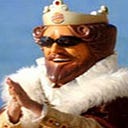The Myth of American Support for Pinochet
Its become a common Anti American trope to blame the United States for Pinochet’s atrocities. Despite the fact that there was never any American Involvement in the 1973 coup which installed Pinochet, a criticism of US Foreign Policy has been of its support of Dictators and one of those commonly named is Pinochet.
However the notion that the United States supported Augusto Pinochet is also a false one.
From the Years of Upheaval By Henry Kissinger
It soon emerged that there were major obstacles to assisting the new Chilean authorities. To be sure, loans from private banks increased sharply as the expropriation issues were settled and the austerity program began to take effect. But the intensity of feeling against military governments in the post-Vietnam, Watergate Congress made it very hard to obtain governmental aid. The Commodity Credit Corporation loaned $24 million to replace food shipments from Eastern Europe and the Soviet Union that had been turned around on the high seas on the day of the coup. (This gave dramatic proof of the political motivations of Soviet aid programs.) In mid-November, our Department of Agriculture granted Chile an additional loan of $28 million. For the rest, we relied primarily on the PL–480 food program as a vehicle for meeting Chilean needs. Food assistance was less controversial since it would go to the hungry and because the Administration had considerable discretion in allocating it.
Ironically, the Nixon Administration was reluctant to carry out agreements on military supply even when they had been made with Allende’s government, lest they cause an explosion in Congress jeopardizing our entire foreign aid program. For this reason the delivery to Chile of three destroyers — promised to Allende! — was delayed by several weeks until the foreign aid bill had passed.
All of these maneuvers obscured the fundamental problem: How was the United States to reconcile its geopolitical interests and its concern for human rights? It would be idle to deny that we felt a sense of relief at Allende’s collapse. The new Chilean government, whatever its faults, would not assault our interests in every international forum as its predecessor had done. It would not be a haven for terrorists from all over the world threatening to solidify totalitarianism in Chile and to subvert neighboring Western Hemisphere governments. We could not convince ourselves that undermining the new government would serve either the cause of human rights or our own security. Yet there was no blinking the fact, either, that the very opposition parties and newspapers that we had attempted to keep alive under Allende were suppressed by the junta. The imposition of an authoritarian regime in a country with the longstanding democratic tradition of Chile was a special pity — but the circumstances that brought it about were extraordinary, too
Unfortunately, the issue arose in America at the worst possible time. In the aftermath of Vietnam and during Watergate, the idea that we had to earn the right to conduct foreign policy by moral purity — that we could prevail through righteousness rather than power — had an inevitable attraction. There was a mood of resignation from the world of hard tactical choices, reinforced by the historical American animus toward the concept of equilibrium. It was not the first time in our history that the aversion to power politics took the form of a moral crusade. And the fetid climate of Watergate endowed the charge of the Administration’s moral obtuseness with a certain credibility
Chile thus became caught up in a domestic debate transcending it; it had to carry the burdens of Watergate as well as of Vietnam. The Nixon Administration was not so insensitive to the Chilean junta’s clumsy and occasionally brutal practices as our critics alleged. But we considered that the change of government in Chile was on balance favorable — even from the point of view of human rights. We were therefore prepared to give the military leaders a chance; we made repeated private approaches to ease their methods. There is no doubt that our insistence on quiet diplomacy weakened our case at home even as it succeeded with Chile in many individual cases. It is equally true that many of our critics were retroactively blind to the totalitarian implications of Allende’s policies, ignored he danger of his alliance with Cuba and the Soviet Union, invented a role for us in bringing him down, and acted as if overthrowing the junta was now the sole valid national objective.
Senator Kennedy deplored the Nixon Administration’s “policy of silence.” On October 2, he proposed an amendment to the Foreign Assistance Act stating that it was the sense of Congress that the President should cut off aid, other than humanitarian assistance, to Chile “until he finds that the government of Chile is protecting the human rights of all individuals, Chilean and foreign — as provided in the Universal Declaration of Human Rights.”The Foreign Assistance Act as finally approved by the Congress in December 1973 did not contain this provision but did include a request that Nixon call on the Chilean government to respect human rights. Senator Kennedy mounted another effort to cut off aid to Chile in 1974. Both houses of Congress voted in December 1974, in the foreign assistance legislation for 1975, to end all American military aid to Chile “unless the President reports to Congress that Chile is making fundamental improvements in fthe observance of human rights.” By 1976 all aid to Chile was effectively cut off — a step never taken against Allende.
To summarize, Military aid was cut off in 1974 followed by all aid in 1976. The idea that the United States supported Pinochet is also a false one.
